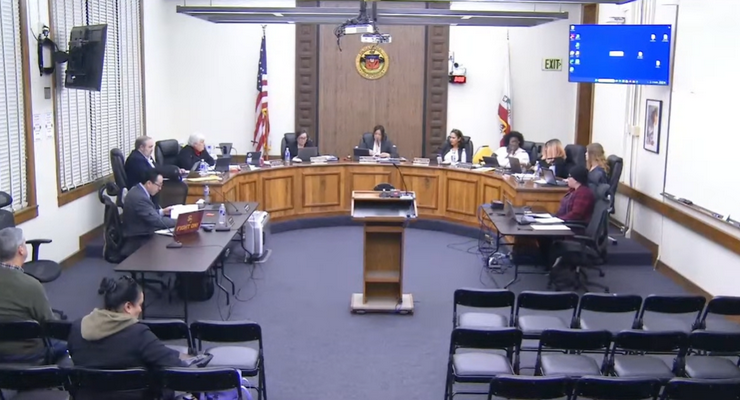
June 2003. The American south is still segregated, blacks are employed by wealthy whites and treated like the lowliest of servants in an effect reminiscent of the Mammys, Bucks, and “boys” of old Hollywood, lynching is an after-dinner pastime, and use of the n-word in casual conversation abounds.
Celebrated sci-fi literary giant Ray Bradbury paints this raw and oftentimes hard-to-read picture as the context within his short story, “Way in the Middle of the Air.” Bradbury imagines a mass exodus of all the black people in America —not back to Africa as one white character suggests, but to the planet Mars— to escape the racial tyranny of Earth. This short appears in Bradbury’s famous first novel, The Martian Chronicles, first published in 1950.
From Bradbury’s 1950s viewpoint, June 2003 is the farthest reach of the future, and in this future, racism is still alive and as virulent as ever. To be clear, Bradbury is not writing as pro-racist. Rather, he is musing on what would happen to the racists if their prey could —and did— just leave, far beyond where they could reach. In the story one man, Samuel Teece, clings to his racist views and lifestyle, even going as far as to stop his “employees” from joining their families in the mass exodus. However, Teece’s white friends, family, and colleagues set him straight and do what they can to let the blacks go without issue.
When I first read this story as a teenager, it struck me between the eyes and moved me to tears. It’s stayed with me over the years, and not just because I revisit and revel in Bradbury’s works at least once a year. The narrative is many things: a white man writing for and not about black people; a story that suggests the clutches of racism are so strong and so perverse that the only escape is an entirely new world; the first time I ever thought about black people in the sci-fi future.
In Bradbury’s 1951 collection, The Illustrated Man, he includes a story that seems to follow “Way in the Middle of the Air” — “The Other Foot.” In it, the reader learns the exodus was a success and blacks have been living peacefully on Mars for over twenty years. “They say a rocket’s coming,” says a young black boy to his mother, “first one in twenty years, with a white man in it!” One of the boy’s brothers pipes up, “What’s a white man? I’ve never seen one” (27).
The adults who grew up on Earth are understandably wary of the coming white man, while their Martian children are in awe at the very idea of people with “white hands, arms, and faces” (28). This story sees the adults who remember decide to set up a Jim Crow-like system of segregation to await the whites and treat them on Mars as they were treated on Earth. However, when the white people arrive with news that everything on Earth, including all traces of past racist atrocities, has been destroyed, the blacks then take pity on them.
“…Now the white man’s as lonely as we’ve always been. He’s got no home now, just like we didn’t have one for so long. Now everything’s even. We can start all over again, on the same level” — and welcome them peacefully into their established society (38).
To me, this ending sets up the idea of a post-race world, something popular in science fiction media. Take franchises like Star Wars, Futurama, and perhaps most notably, Star Trek as examples — in each setting humanity has progressed so far into the future that race in the traditional sense is no longer an issue. What with the discovery of aliens, different planets, and even the multiverse, why would something as trivial as race still be a problem?
For the blacks in “The Other Foot” they make the choice that in this new future, race will no longer matter — especially not in the way it did when they were victimized by it. But one must ask: does a post-race universe simply just erase the realities of racism for future generations? Should they be erased and forgotten? Will representation matter to anyone who has never felt othered, even if their not-too-distant ancestors were othered?
I don’t pretend to have the answer, but I am reminded of a conversation I had with Pasadena Now’s own Andre? Coleman some months ago. We quickly discovered we are both sci-fi fans: theories about Avengers: Endgame and the future of Marvel gave way to talks about growing up watching Star Trek (me because my mother is a huge fan, Andre? because it was popular in his childhood), which led to an interesting anecdote about the time Andre? met the incomparable Nichelle Nichols.
Of course, they talked about the famous first-interracial-kiss-on-television between Ms. Nichols and William Shatner in the late 60s, and Ms. Nichols explained to Andre? just how deep the ripples of those few historical moments spread: some stations in more conservative states refused to air the episode, Nichols considered quitting the show for a promising theatre opportunity, Lenoard Nimoy offered her encouragement and promised to stand with her whatever happened, and Ms. Nichols eventually met “biggest fan” Martin Luther King Jr., who would be one of the main reasons she stayed:
“We need to know that black people survive in the future,” Dr. King said to her. “On the show, we are seen as we should be seen every day.”
Lt. Uhura was proof that black people are intelligent, capable, beautiful, desirable, able — that despite everything, we survive and thrive in the future. She could be the product of the settlement of blacks on Mars in Bradbury’s novels — an intelligent, ambitious black woman unmarred by the traumas of her ancestral past.
Though that future is set in a post-race universe, the viewers in this universe, in this world, need to know that we are not beaten or eradicated, that we can finally come to a place and time where the world sees us as we really are.
Suffice it to say I had tears in my eyes hearing this, struck once again by a reality I don’t give much thought: what happens to us in the future?
Will race still matter then? Will it matter after we’ve discovered extensive space travel and aliens and new worlds and parallel universes? Perhaps not. But does it matter right now for audiences like myself and Andre? and my parents to see black people belonging as integral parts of these fantastical narratives?
I think it does. However far into the future we’re reaching, it matters.
Kathryn H. Ross is a Southern California based author who recently published her debut book Black Was Not A Label with local indie press PRONTO. You can find it on Amazon, Indiebound, Barnes & Noble, and everywhere else books are sold.
As a writer and person, Ross enjoys and desires to get to the heart of relationships, stories, and people by stripping away the surface layers through contemplation, conversation, and time to reveal the inner soul. Read the rest of her creative works at speakthewritelanguage.com


















